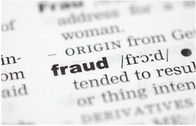Advertisement
Center for Public Integrity report: Banned appraisers return as real estate agents

In 2007, a Florida real estate appraisal trainee name Serge R. Wainer lost his license over a forged home appraisal. After an investigation, the Florida Real Estate Appraisal Board revoked Wainer’s license, but until recently, he remained a fixture in the Florida real estate market. Like other disciplined appraisers who also held real estate sales and broker licenses, Wainer moved to the other side of the real estate business and began selling homes for a living.
A Center for Public Integrity investigation found that in California and Florida (among the states hardest hit by the foreclosure crisis) individuals whose appraisal licenses were revoked have retained other licenses, allowing them to represent the public in real estate sales. The violations that led to revocation of these appraisers’ licenses ranged from simple incompetence to fraud committed for personal financial gain, according to the Center’s investigation, “Rebuked Appraisers Reborn as Real Estate Agents.”
Industry insiders believe the number of these former appraisers still in real estate is in the hundreds nationwide, but an accurate figure is elusive given the patchwork of agency oversight. “There’s a lot more that you are never going to find,” said Pamela Crowley, who runs the website Mortgage Fraud Watch List. “Those of us who have been active in trying to police our own have come to the conclusion that our policing agencies don’t want that.”
California and Florida officials say in most cases appraisers who commit serious offenses—including fraud—should also lose other real estate licenses. But often those appraisers slipped through the cracks of a loosely maintained and fractured system of state oversight.
This investigation is the latest installment in the Center’s coverage of appraisers and mortgage lenders, and the role they played in creating the real estate bubble and the resulting foreclosure crisis. In April, the Center published “The Appraisal Bubble,” which documented how lenders conspired to inflate home values by denying appraisers work if they refused to hit a predetermined value on their appraisals.
The goal of the Center’s Land Use Accountability Project is to expand the discussion of national land use issues by documenting the growth struggles of communities of all sizes across the country. The project will probe the influence of developers and open space advocates on local political systems and illustrate the tensions between growth and preservation.
For more information, visit www.publicintegrity.org.
About the author




